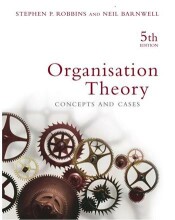Lit 4: Ethics
28 important questions on Lit 4: Ethics
What are the 3 domains of business ethics?
discipline: moral philosophy
evaluate: what should be considered right and wrong decisions
2. Descriptive ethics - serves to describe, understand, influence and predict moral behaviour of groups/individuals
discipline: behavioural psychology
evaluate: people's right and wrong actions
3. Ethics management - how management tools can be used to address ethical issues
discipline: management studies
evaluate: management tools to facilitate morally excellent behaviour
What are the steps of the morality ladder?
2. Ethics: what is good to do by nature
3. Conformity: what do others expect me to do
4. Compliance: what is obligatory according to laws and regulations
5. Egoism: what brings the most profit
At what 3 primary levels are business ethics applied?
2. Organisational ethics
3. Economic ethics
- Higher grades + faster learning
- Never study anything twice
- 100% sure, 100% understanding
What are the 3 phases of ethics management?
2. Alternative selection
3. Implementation based on ethical principles
What are the 3 streams in normative ethics?
2. Deontology - actions are right when they follow moral principles derived from universally applicable rules
3. Consequentialism - actions are right based on the result of the decision alternative, utilitarianism is a form of consequentialism
What are business ethics?
What are moral dilemmas?
What are the 5 main categories of values that guide business ethics?
1. Persons
2. Virtue
3. Happiness
4. Relationship
5. Goals
What are the 6 most prevalent values in corporate codes of conduct?
2. Respect
3. Responsibility
4. Fairness
5. Caring
6. Citizenship
What are the 5 dimensions on which business ethics are viewed?
2. Absolutism vs relativism - moral principles are universal or based on context
3. Against vs pro-business - business is inherently bad or good
4. Philosophy vs social science
5. Western vs international
In what sense can consequential ethics differ?
2. Whose goal - egoism vs utilitarianism
3. Number of intrinsic ends: monism (one goal) vs pluralism (multiple goals)
What are the advantages to consequential ethics?
2. Allow for application to personal life matters
3. Fits with reasoning in market, as economic decisions also require weighing of costs and benefits
4. Fits in political context, as politicians also strive to make decisions that are beneficial for the largest number of people
What are the characteristics of deontology?
2. Act should be done from obligations/certain principles
3. These principles can stem from monism (stemming from one universal principle) or from pluralism, and prima facie (correct until proven otherwise)
4. Kant: ethics should have an appeal for reason - should stimulate and protect rationality
5. Kant: we should respect the rationality of others by obliging to their rules.
What are the 2 main ideas behind Kant's theory?
2. Non-instrumentalisation - don't treat others as instruments and be respectful
What are the problems with consequential ethics?
1. Comparison (how can you compare the value of food against the value of a car)
2. Measurement (how to measure pleasure)
Fundamental:
3. Rights (to what extent can rights be violated by an action that benefits the majority)
4. Justice (how the results are spread, benefiting one can mean suffering to another)
What are the advantages of deontological ethics?
What are the problems with deontology?
2. Black-white - no room for exceptions
3. Doesn't consider the effects - you are obliged to stick to your principles even if it could have a negative effect
4. Doesn't take into consideration attitudes - motives are left out of the equation, it is quite a mechanic view
5. Doesn't give guidelines for addressing conflicting rights
What are the 3 types of virtues?
2. To the outside virtues (generosity, magnificence and sociability)
3. Towards fairness (justice)
What are the steps in the ethical decision-making process?
2. Judgement of what is right and wrong in the situation
3. A motivation to behave in accordance with ethical principles
4. The actual behavioural follow through with the correct ethical decision alternative
Which two factors influence the ethical decision-making process?
2. Situational factors - issue- and context-related components
What is moral excellence?
What is ethics performance?
What are the 2 approaches to ethics performance ?
2. Observed behaviour - based performance on results of decision alternatives, and bases evaluation on quantitative surveys gauging observed ethical and unethical behaviour
What is ethical management?
What are the 2 types of ethics management tools?
2. Specialised tools - processes and measures created specifically to manage ethics for the whole organisation (codes of conduct, ombudsmen, audits, etc.)
What is an ethics culture?
What is the difference between ethical opportunities and issues?
What are the 4 types of ethical issues?
2. Moral laxity (low motivation, indeterminate moral judgement) - actors lack motivation to act
3. No-problem problem (high motivation, determinate moral judgement) - right action is clearly known
4. Compliance problem (low motivation, high determinate moral judgement) - right action is known but actor doesn't want to conform with ethical behaviour)
The question on the page originate from the summary of the following study material:
- A unique study and practice tool
- Never study anything twice again
- Get the grades you hope for
- 100% sure, 100% understanding






























